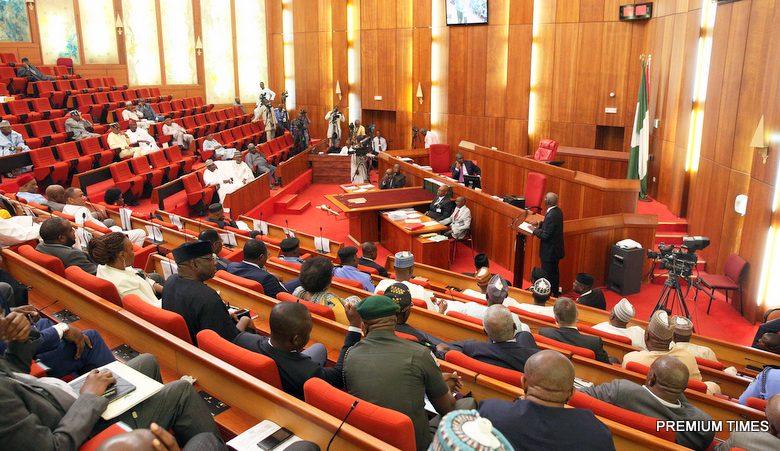
The Nigerian Senate has announced plans to engage the Federal Government to develop a coordinated diplomatic and counter-terrorism strategy in response to a U.S. bill proposing sanctions on Nigerian officials accused of religious persecution.
The move followed debates on Thursday during plenary presided over by Senate President Godswill Akpabio.
Lawmakers strongly rejected what they described as “false and divisive” claims by U.S. Senator Ted Cruz and TV host Bill Maher that Nigeria was experiencing a “Christian genocide.”
Senators across party lines warned that such allegations were misleading and dangerous, capable of harming the country’s unity and image abroad.
Earlier, the U.S. bill known as the Nigeria Religious Freedom Accountability Act of 2025 seeks to re-designate Nigeria as a “Country of Particular Concern” and impose sanctions on persons allegedly complicit in religious persecution.
The debate followed a motion sponsored by Senator Mohammed Ali Ndume (Borno South), titled “Urgent Need to Correct Misconceptions Regarding the Purported ‘Christian Genocide’ Narrative in Nigeria and International Communities.” The motion was co-sponsored by Senators Sani Musa, Magatakarda Wamakko, Ibrahim Bomai, and Ahmed Wadada.
Ndume described the claims by Cruz and Maher as “baseless and misleading,” insisting that terrorism in Nigeria targets both Muslims and Christians alike. He called for proactive steps to protect Nigeria’s image and support government efforts against extremism.
Senator Wamakko said, “This misinformation cannot continue like this. We must take decisive steps to address this issue and defend our country’s integrity.”
Senator Suleiman Kawu Sumaila also condemned the genocide narrative, stating that insecurity in Nigeria had no religious bias. According to him, “In Borno, Kaduna, and Kano, hundreds of Muslims have also been killed. Terrorism in Nigeria does not discriminate, it kills Christians and Muslims alike.”
Similarly, Senator Jimoh Ibrahim (APC, Ondo South) urged the Senate to approach the matter with a knowledge-based strategy. He called for an executive session to design effective diplomatic and counter-terrorism measures.
In his remarks, Senate President Godswill Akpabio commended the non-partisan debate and dismissed the U.S. bill as “a one-sided narrative that distorts Nigeria’s security situation.” He maintained that terrorism in Nigeria affects people of all faiths and warned that sanctions could worsen economic hardship.
“When terrorists attack, they don’t ask if their victims are Christians or Muslims,” Akpabio said. “Sanctions breed poverty, and poverty knows no religion.”
The Senate resolved to collaborate with the Ministry of Foreign Affairs, the Office of the National Security Adviser, and the Presidency to craft a detailed national response. Lawmakers also proposed sending a high-level delegation to the U.S. Congress to present Nigeria’s side of the story.
The motion was adopted following a voice vote moved by Senate Leader Opeyemi Bamidele (Ekiti Central) and seconded by Senator Abdul Ningi (PDP, Bauchi Central).
However, the Senate is expected to hold a closed-door session next week to fine-tune the country’s position and outline next steps.
In a related development, former senate chief whip, Senator Ali Ndume recently dismissed the “Christian genocide” claim made by Senator Ted Cruz, describing it as “false, provocative, and aimed at destabilising Nigeria’s peace and religious harmony.”
